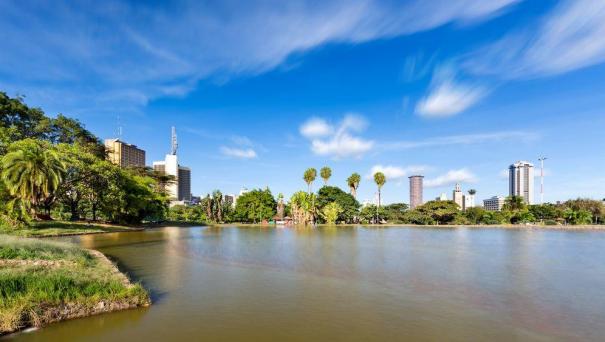About Nairobi
Nairobi is the capital and largest city of Kenya. It is famous for having the Nairobi National Park, the world's only game reserve found within a major city. With a population of 3.36 million in 2011, Nairobi is the second-largest city by population in the African Great Lakes region. The area was essentially uninhabited swamp until a supply depot of the Uganda Railway was built in 1899, which soon became the railway's headquarters. The city was named after a water hole known in Maasai as Enkare Nairobi, meaning "place of cool waters". In 1905, Nairobi replaced Mombasa as capital of the British protectorate, and the city grew around administration and tourism, initially in the form of big game hunting, this has now been replaced with safaris. Nairobi has a subtropical highland climate. At 1,795 metres (5,889 ft) above sea level, evenings may be cool, especially in the June/July season, when the temperature can drop to 9 °C (48 °F). The sunniest and warmest part of the year is from December to March, when temperatures average the mid-twenties during the day. The mean maximum temperature for this period is 24 °C (75 °F). Nairobi is home to several museums, sites, and monuments.
